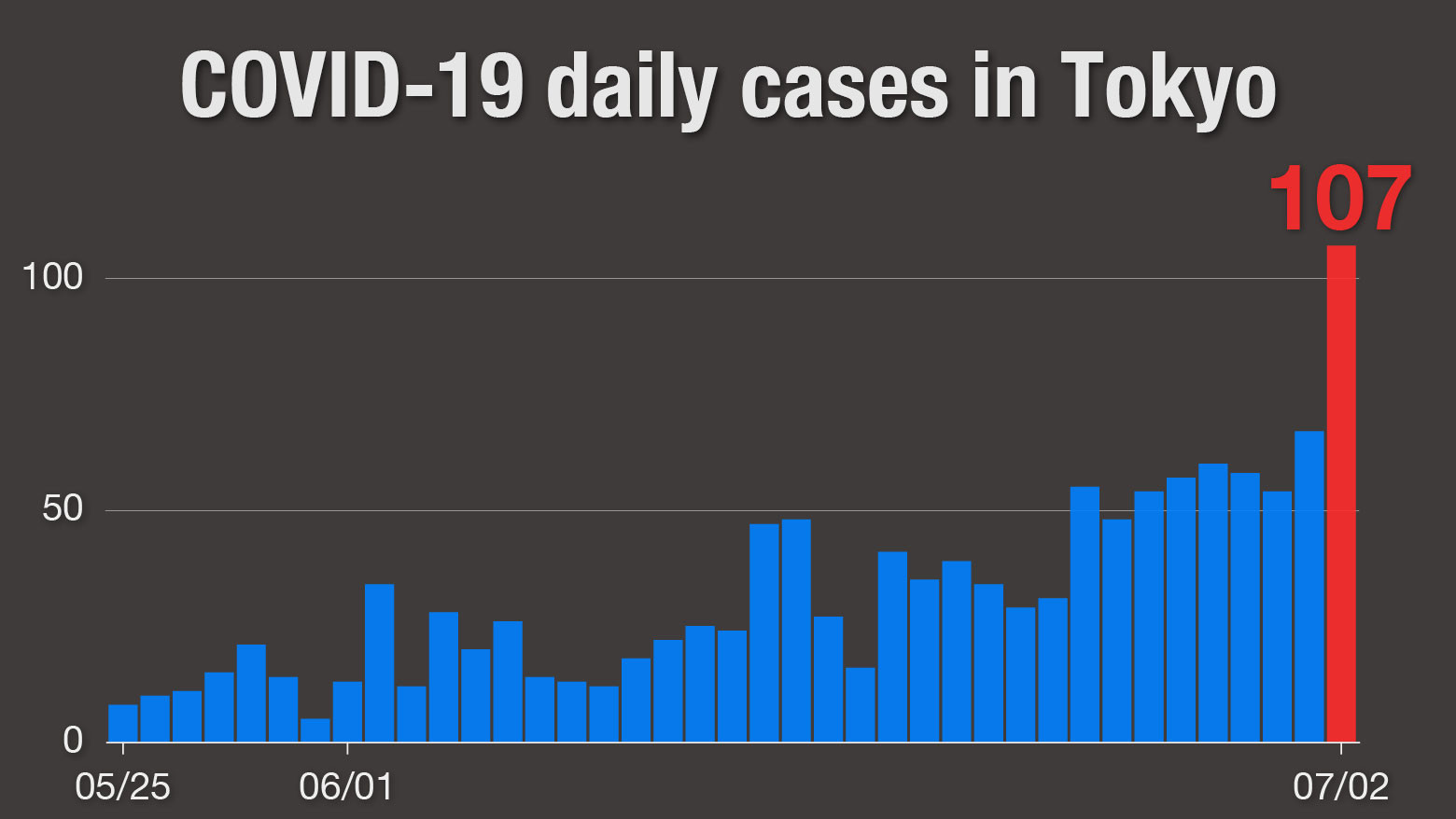For a month after the complete lifting of the state of emergency in Japan, the rate of new cases remained calm. But on June 26 the figure topped 50 and it hasn't dipped below that since.
The government says 62 of the cases found Thursday were people who had been in close contact with someone already infected. The infection routes of the other 45 are not yet known.
They have linked 29 of the cases to nightlife establishments including Shinjuku area, where Tokyo officials are aggressively testing people. And young people account for 71 of the cases, over 66% of total, with 34.6% in their 20s and 31.8% in their 30s.

The Tokyo government also says the rise in new cases cannot be explained by aggressive testing alone.
Governor Koike Yuriko says she is aware that current conditions require vigilance, and says she would like people to refrain from visiting nightlife establishments.
But she also said she doesn't believe people would support a return to a situation where businesses are asked to reduce or cease operations, like during the state of emergency. She said she will continue to send a clear message to people in specific areas, generations and businesses.
In the Upper House health and labor committee on Thursday, Omi Shigeru, the deputy head of the government's panel of experts, said it may be difficult to again reach a public consensus on issuing strong requests for people to stay home and businesses to shut down, as was the case before the state of emergency.
Omi said the present situation is clearly different in terms of medical capabilities and testing systems. He called for comprehensive planning rather than simply using numerical benchmarks.
Chief Cabinet Secretary Suga Yoshihide spoke at a news conference on Thursday. He also says he doesn't think the current condition warrants declaring another state of emergency. But he says the government will keep a close eye on the pattern of infections and will support measures to prevent infections while maintaining social and economic activity.
But Kutsuna Satoshi of the National Center for Global Health and Medicine was more circumspect. He told NHK that the figures suggest a dangerous possibility that the country could be heading for a repeat of the first wave of infections.
Dr. Kutsuna says many young people are getting infected, some of whom show no symptoms, making the spread of infections more likely. He says the rate of new cases is increasing faster than expected, and if it continues, the number of serious illnesses will increase, too. He says unless more serious efforts are made to address these numbers, the government will again have to declare a state of emergency.

